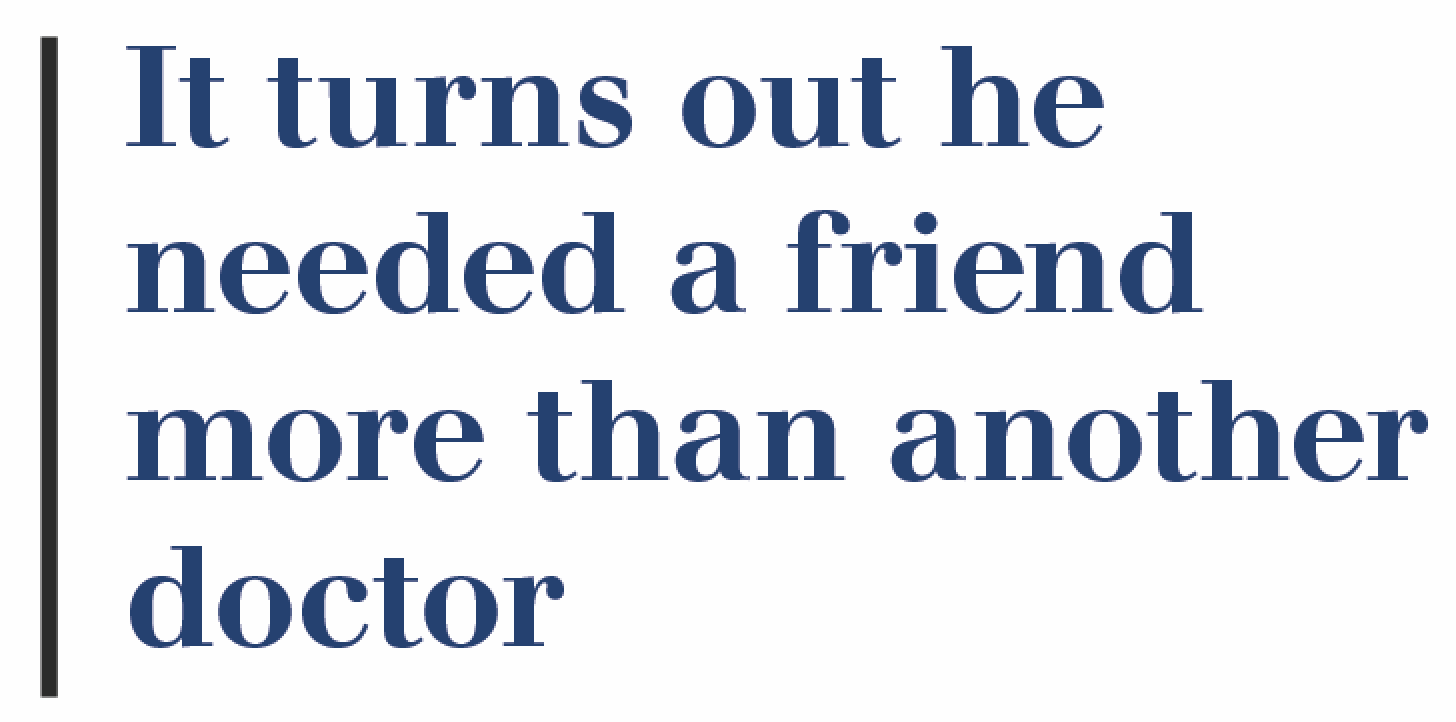Why my passion for pediatric exams stays personal


Although I am not a pediatric specialist, I see children on a daily basis in my office. I am also a parent. My wife and I have two little boys. The older is almost 6 years old, and our younger is just over 2 years old. As you may guess, my passion for pediatric exams is personal.
Difficult conversation
One of my best friends since elementary school called me to say his youngest son Christopher, age 2, seemed to have some swelling at his temporal canthus. I asked him to text me pictures. Obviously, I couldn't diagnose anything specific through a cell phone photo, but it was enough to get me worried.
At this point, I had been out of optometry school for only a few years. Although I felt prepared for all things optometric, nothing prepared me for needing to tell one of my best friends that the pictures looked suspicious and potentially serious and he should have his son evaluated as soon as possible.
I don't remember much of the conversation because my mind was racing through random memories of pediatric ocular conditions I could recall from optometry school. What do you say? How much of what you are thinking do you divulge? You don't want to unduly frighten the parents, but you must convey the potential seriousness of the situation.
The child was promptly examined, and the diagnosis came back: neuroblastoma.
My mind was spinning with so many questions. How did the condition progress to this point? Why didn't someone find it sooner? I had seen my friend and his family not that long ago. Should I have discussed comprehensive pediatric eye exams for his two children?
Following diagnosis, Christopher received the best care possible from the best doctors available. His cancer had already spread to other parts of his body. He underwent multiple surgeries, treatments, and medications to attempt to defeat the disease.
I kept in closer touch with my friend during this time just trying to be there as a friend but also as a doctor if needed. It turns out he needed a friend more than another doctor.
About a year and a half into the child’s treatments, my wife and I welcomed our firstborn son into our family. Early one morning, I got a text message asking me to call my friend. I called back immediately and got the news that Christopher had passed away during the night.
I had no words. Not only did this hit me hard as a friend and a doctor, but I felt it even more so as a new father. I was hurting so much that I had no idea how he and his wife could bear their pain and grief.
Both OD and parent
As an optometrist, it's my job to see patients, diagnose potential problems, and provide the appropriate treatment. As a parent, my obligations are more emotional and less concrete.
When I see pediatric patients in my office, I cannot help but draw correlations to my own two boys. When I examine a 6-month old baby who is crying and upset by my bright lights and drops, I hear my own little boys in their cries. As a parent, I know what it's like to go to the doctor and have to let a “stranger,” albeit a doctor, make your child cry.
Fortunately for our profession, we rarely have to use the dreaded four-letter word “shot.” We don’t have to worry about vaccines, treating croup, or even the common cold.
Duty to pediatric patients
Although optometrists may not treat the same conditions as pediatricians, ODs have a profound responsibility and duty to pediatric patients.
In my office, we start seeing pediatric patients as early as 6 months for InfantSee exams, and as long as everything is healthy and normal, again at 3 years old and every year afterward. We provide comprehensive dilated eye exams.
A comment I hear frequently is, “What can you check in a 6-month-old?” It's true, babies can’t tell you if “one or two” is better, and they have a difficult time following verbal directions, but ODs have a responsibility to these patients to do whatever they can.
We have to try. We have to be overly happy, make silly faces and strange noises, speak softly, scatter stuffed animals throughout the exam room, whatever it takes.
Pediatric exams are important
Educate your patients, family, friends, strangers, and everyone on the importance of pediatric eye exams. Remind them not all eye exams are created equal. A vision screening at school or a vision test at the pediatrician can be a good start, but it is not the same as an exam. Nothing can compare to a dilated comprehensive eye exam.
The next time you see a pediatric patient on your exam schedule, think about my friend’s young son. Early detection is key. Don’t see patients for the money or prestige or because it is your job. Do it to prevent more stories like this one.
Disclosures:
Dr. Sikes is a past president for the South Eastern District of the North Carolina State Optometric Society and has served as the Education Trustee for the North Carolina Optometric Society. He enjoys spending time with his family, woodworking, and playing soccer. He tries to get to the beach as much as possible. Dr. Sikes is in private practice in Chapel Hill, NC.
j.scottsikes@gmail.com
Newsletter
Want more insights like this? Subscribe to Optometry Times and get clinical pearls and practice tips delivered straight to your inbox.